Abstract
Magnesium deficiency has been associated with the development of cardiovascular disease in several species. Cats may be predisposed to alterations in magnesium status because of recent changes in the composition of commercial feline diets. The purposes of this study were 1) to examine the dietary history of cats with hypertrophic cardiomyopathy (HCM), 2) to study magnesium status of cats with HCM compared to normal cats, and 3) to determine the effects of magnesium supplementation in cats with HCM. In part 1 of the study, diets of 65 cats with HCM were examined retrospectively. Forty of the 45 cats for which diets could be determined (89%) ate a diet designed to be magnesium-restricted and/or to produce an acidic urine. In part 2 of the study, 10 cats with HCM were compared to 10 healthy control cats for serum creatinine and magnesium; urine creatinine and magnesium, urine specific gravity and pH, and fractional excretion of magnesium. Urine creatinine and specific gravity were higher in control cats than in cats with HCM. No other differences were found between the 2 groups. In part 3, cats with HCM were supplemented with either 210 mg magnesium chloride (n = 15) or 210 mg lactose (n = 15) for 12 wk. No differences between the 2 groups were found for changes in either magnesium status or echocardiographic parameters. However, the 30 cats with HCM, as a group, did show significant improvements in measures of cardiac hypertrophy over the 12-week period. This was likely the result of treatment with other medications, rather than the magnesium supplementation. The results of this study suggest that cats with HCM are likely to be fed magnesium-restricted diets, but that they do not appear to have altered magnesium status compared to healthy controls.
Full text
PDF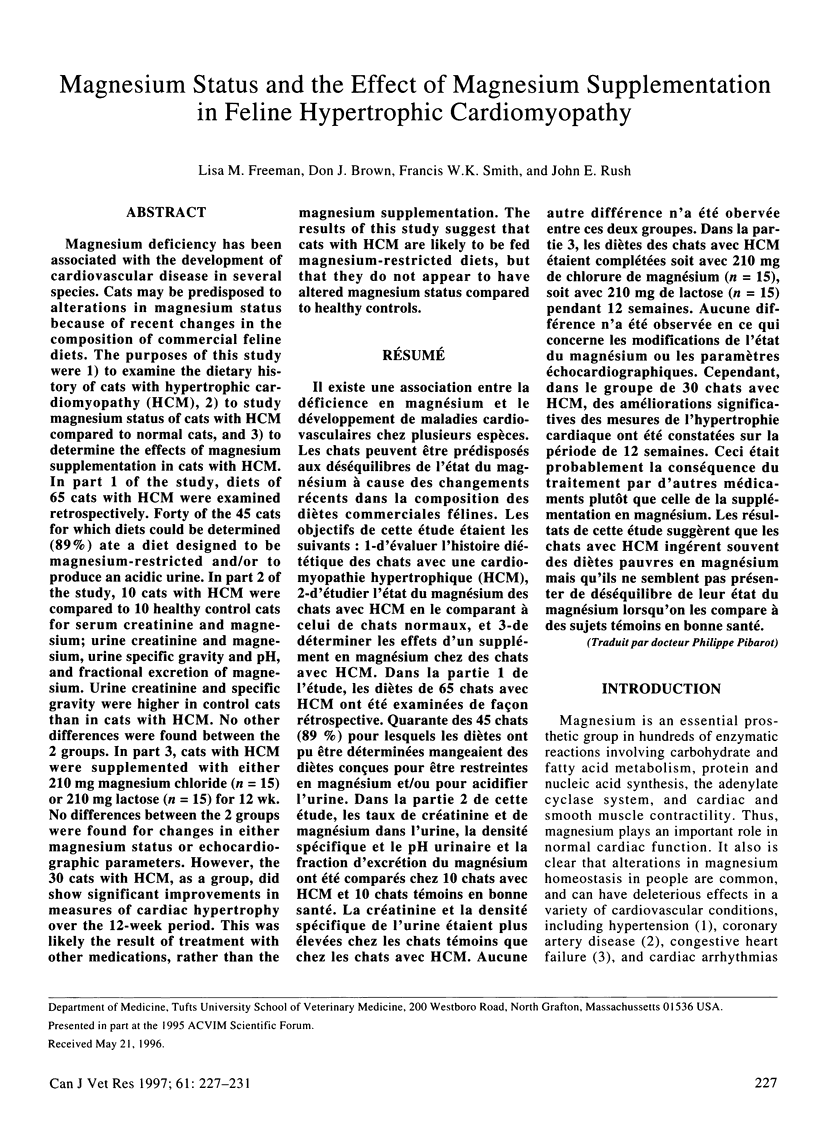
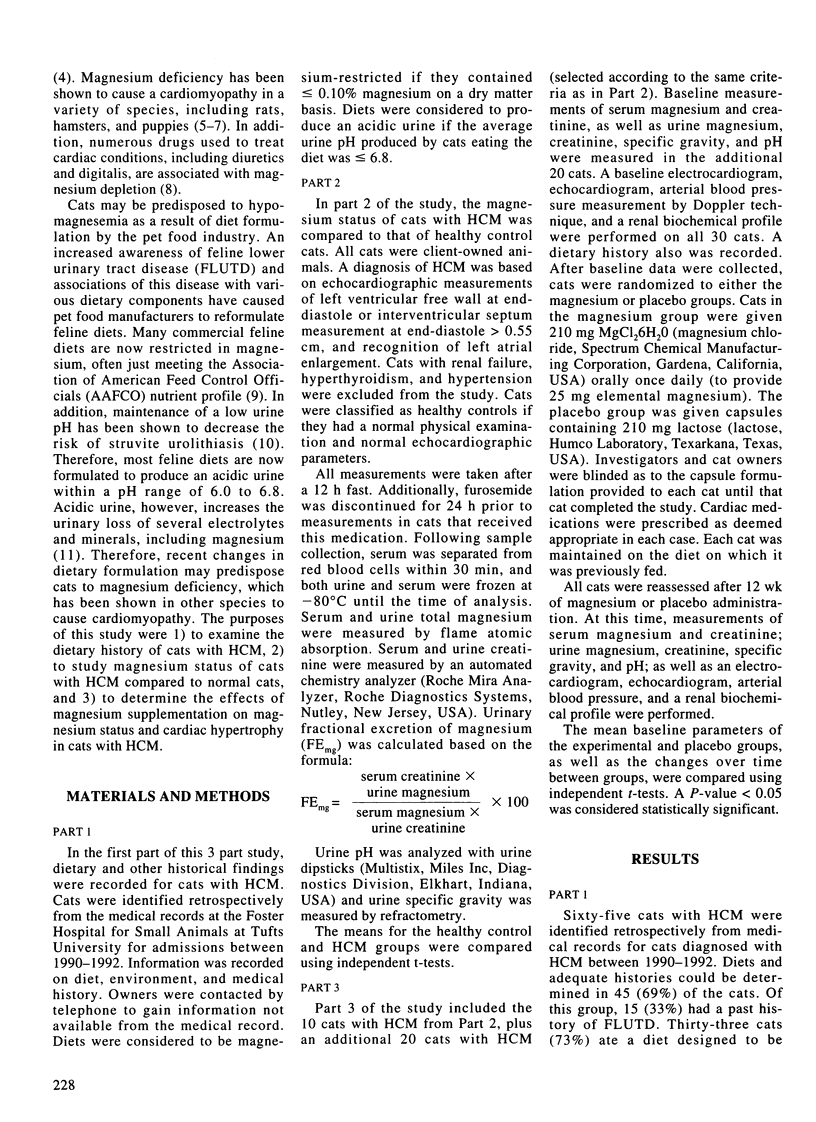
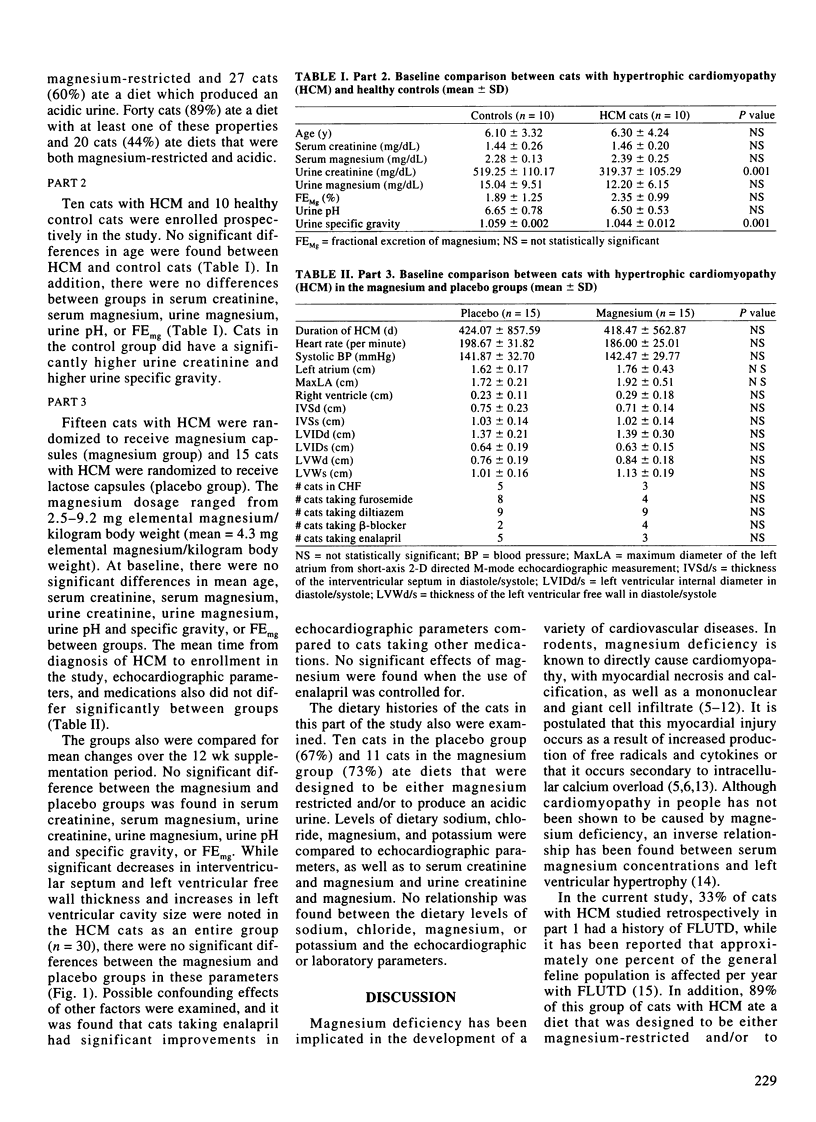
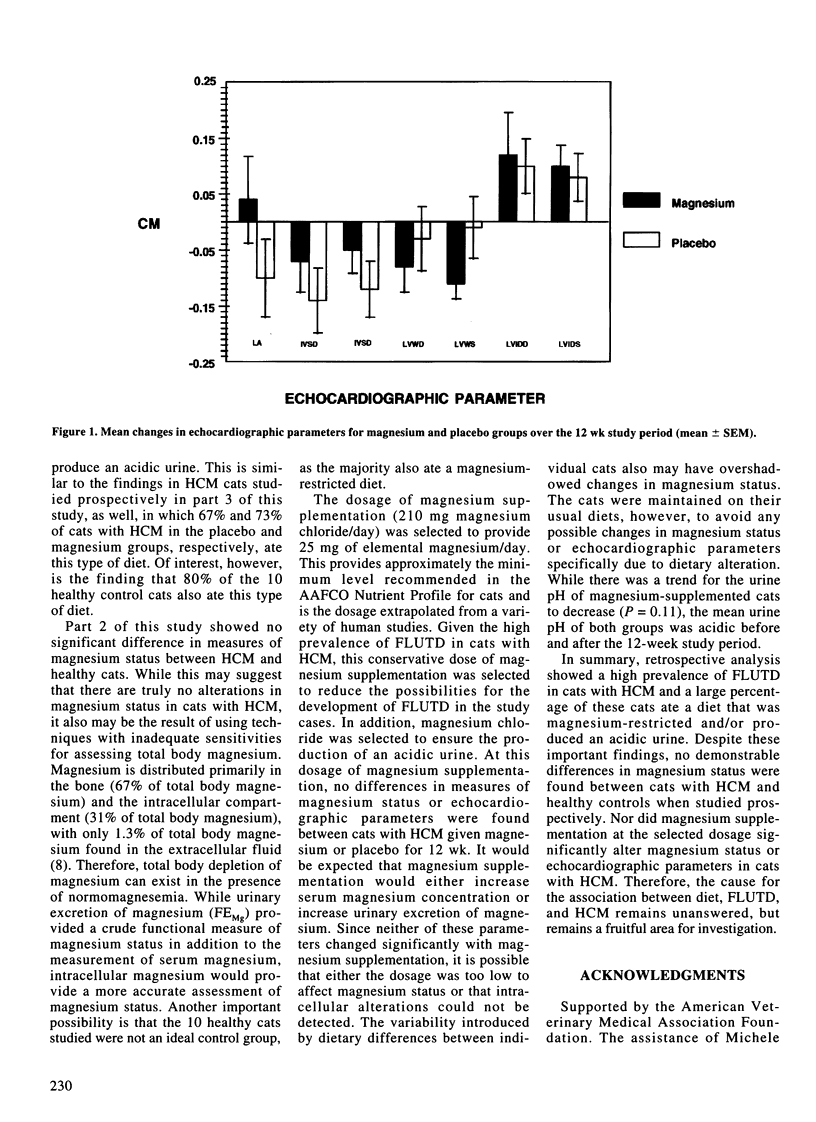
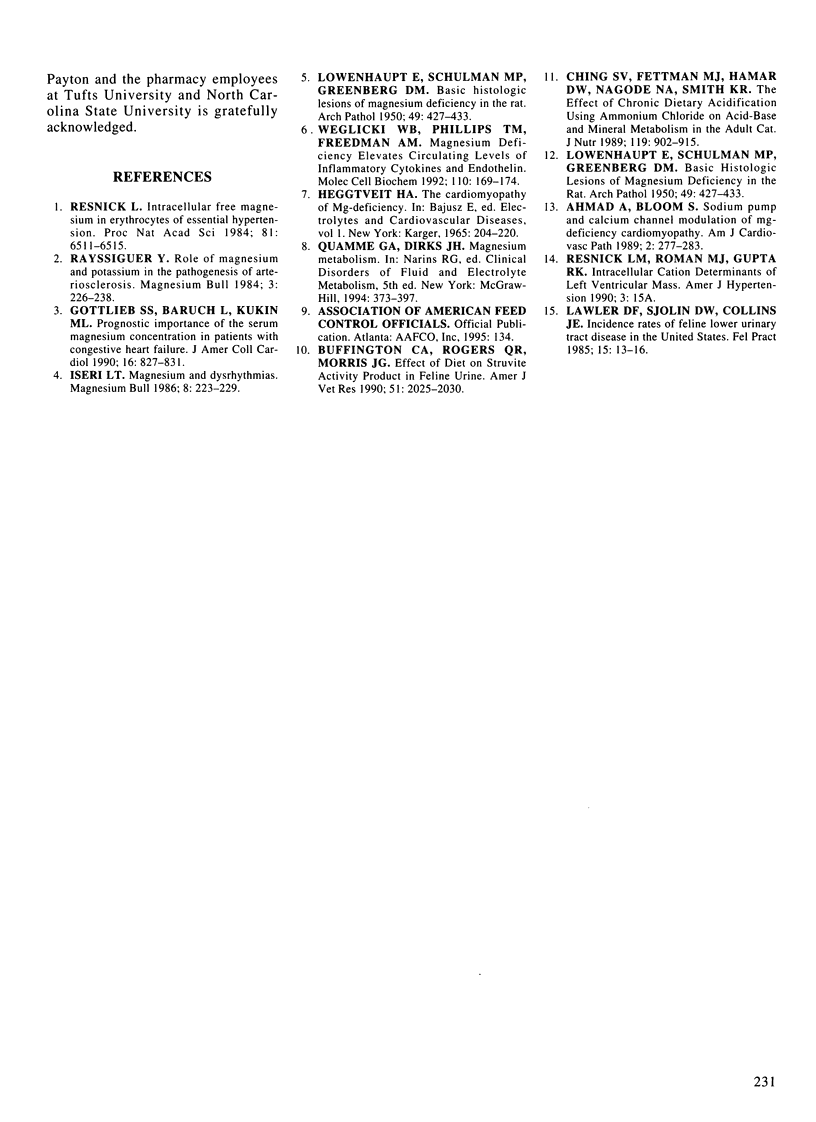
Selected References
These references are in PubMed. This may not be the complete list of references from this article.
- Ahmad A., Bloom S. Sodium pump and calcium channel modulation of Mg-deficiency cardiomyopathy. Am J Cardiovasc Pathol. 1989;2(4):277–283. [PubMed] [Google Scholar]
- Buffington C. A., Rogers Q. R., Morris J. G. Effect of diet on struvite activity product in feline urine. Am J Vet Res. 1990 Dec;51(12):2025–2030. [PubMed] [Google Scholar]
- Ching S. V., Fettman M. J., Hamar D. W., Nagode L. A., Smith K. R. The effect of chronic dietary acidification using ammonium chloride on acid-base and mineral metabolism in the adult cat. J Nutr. 1989 Jun;119(6):902–915. doi: 10.1093/jn/119.6.902. [DOI] [PubMed] [Google Scholar]
- Gottlieb S. S., Baruch L., Kukin M. L., Bernstein J. L., Fisher M. L., Packer M. Prognostic importance of the serum magnesium concentration in patients with congestive heart failure. J Am Coll Cardiol. 1990 Oct;16(4):827–831. doi: 10.1016/s0735-1097(10)80329-8. [DOI] [PubMed] [Google Scholar]
- Weglicki W. B., Phillips T. M., Freedman A. M., Cassidy M. M., Dickens B. F. Magnesium-deficiency elevates circulating levels of inflammatory cytokines and endothelin. Mol Cell Biochem. 1992 Mar 25;110(2):169–173. doi: 10.1007/BF02454195. [DOI] [PubMed] [Google Scholar]


